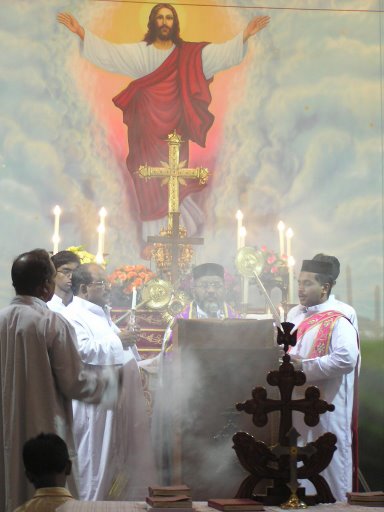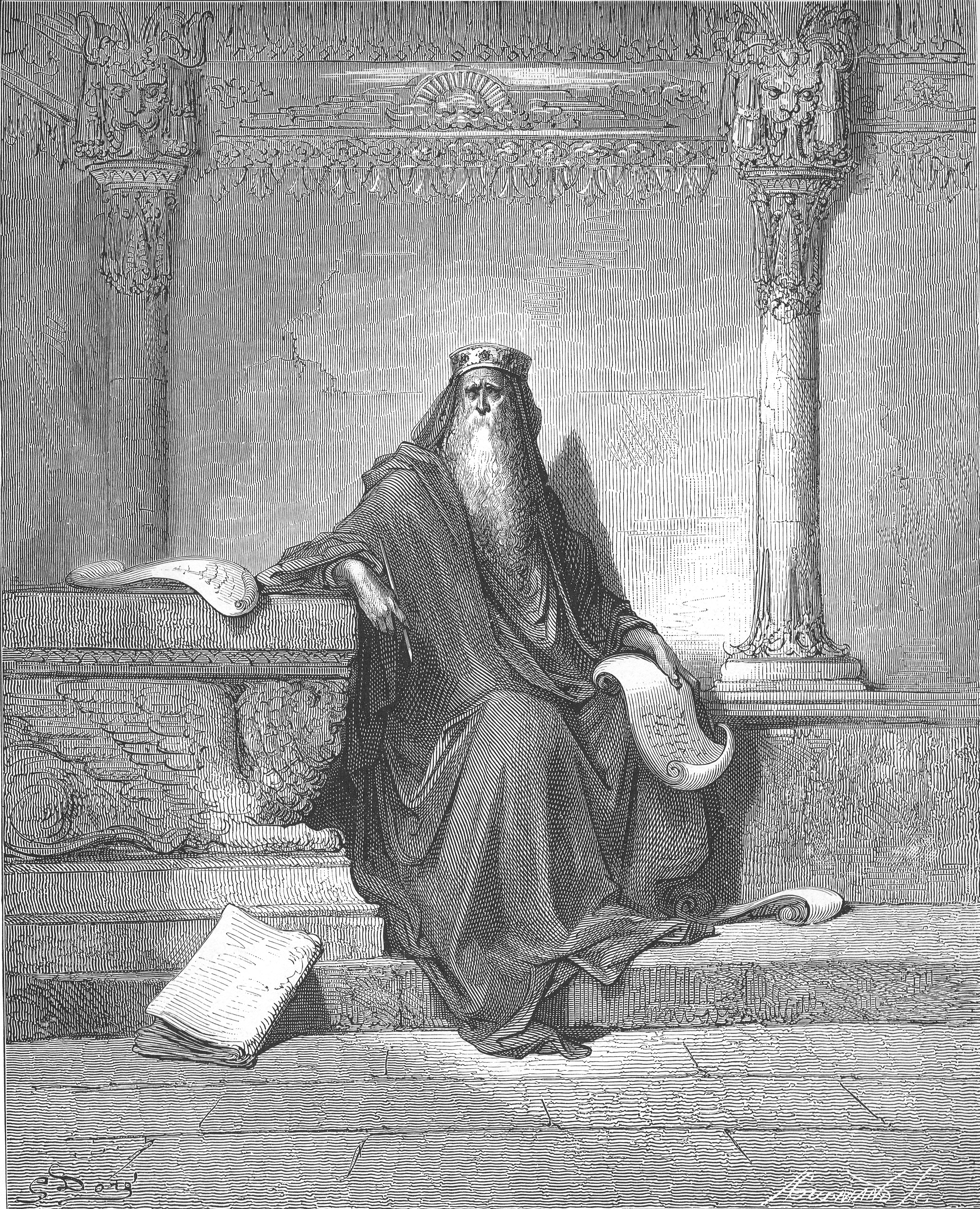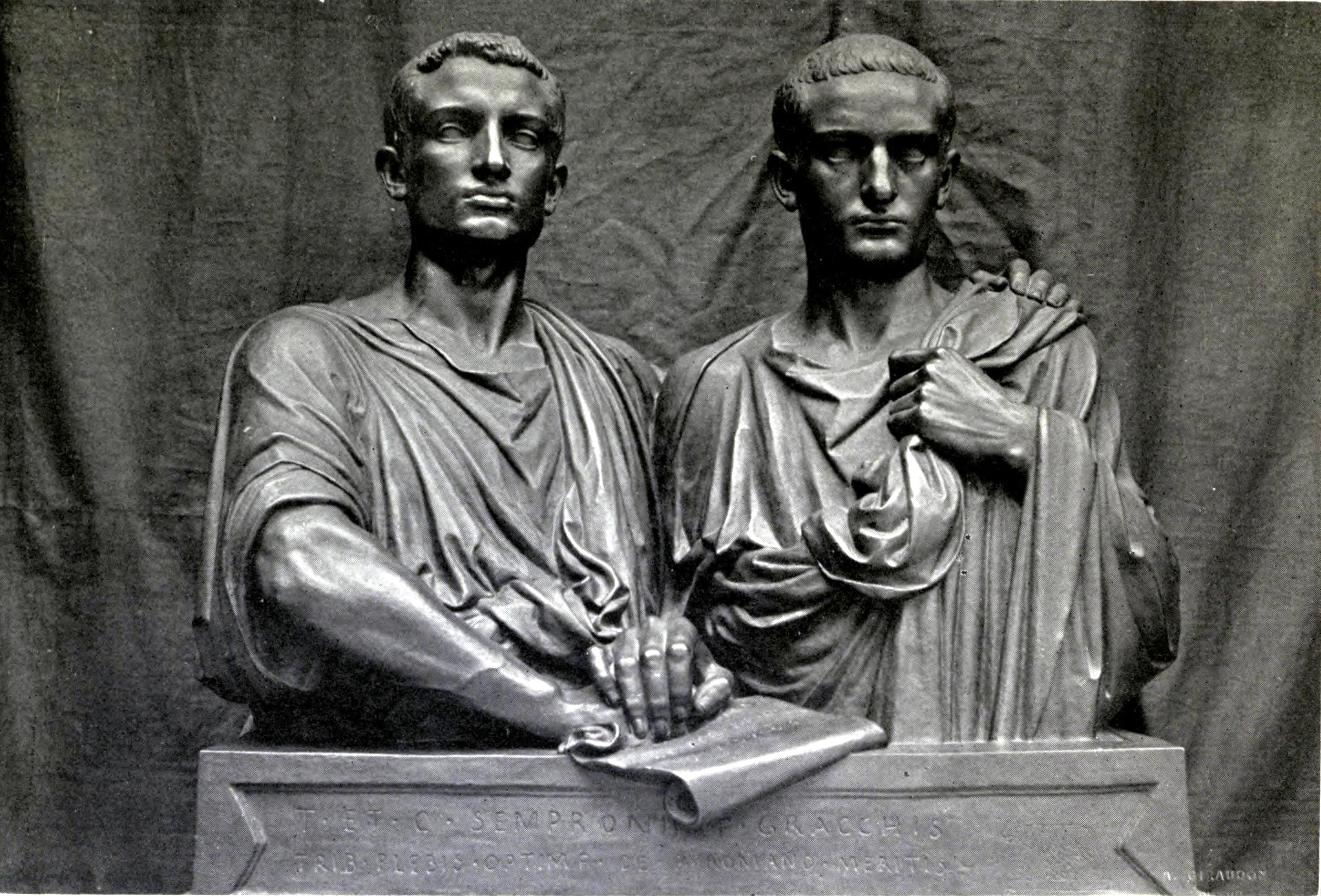|
Claudianus Mamertus
Claudianus Ecdidius Mamertus (died c. 473 AD) was a Gallo-Roman theologian and the younger brother of Saint Mamertus, Bishop of Vienne. Biography Descended probably from one of the leading families of the country, Claudianus Mamertus relinquished his worldly goods and embraced the monastic life. He assisted his brother in the discharge of his functions, and Sidonius Apollinaris describes him as directing the psalm-singing of the chanters, who were formed into groups and chanted alternate verses, whilst the bishop was at the altar celebrating the sacred mysteries. This passage is of importance in the history of liturgical chant. In the same epigram, which constitutes the epitaph of Claudianus Mamertus, Sidonius also informs us that this distinguished scholar composed a lectionary, that is, a collection of readings from the Christians' scriptures to be made on the occasion of certain celebrations during the year. Writings According to the same writer, Claudianus "pierced the sec ... [...More Info...] [...Related Items...] OR: [Wikipedia] [Google] [Baidu] |
Gallo-Roman
Gallo-Roman culture was a consequence of the Romanization (cultural), Romanization of Gauls under the rule of the Roman Empire in Roman Gaul. It was characterized by the Gaulish adoption or adaptation of Roman culture, Roman culture, language, morals and way of life in a uniquely Gaulish context. The well-studied meld of cultures in Gaul gives historians a model against which to compare and contrast parallel developments of Romanization in other less-studied Roman provinces. ''Interpretatio romana'' offered Roman names for Gaulish religion, Gaulish deities such as the smith-god Gobannus; however, of the Celtic deities, only the horse-patroness Epona penetrated Romanized cultures beyond the confines of Gaul. The Migration Period, barbarian invasions began in the late 3rd century and forced upon Gallo-Roman culture fundamental changes in politics, economic underpinning and military organization. The Visigothic Kingdom, Gothic settlement of 418 offered a double loyalty, as Weste ... [...More Info...] [...Related Items...] OR: [Wikipedia] [Google] [Baidu] |
Catholic Encyclopedia
''The'' ''Catholic Encyclopedia: An International Work of Reference on the Constitution, Doctrine, Discipline, and History of the Catholic Church'', also referred to as the ''Old Catholic Encyclopedia'' and the ''Original Catholic Encyclopedia'', is an English-language encyclopedia about Catholicism published in the United States. It was designed "to give its readers full and authoritative information on the entire cycle of Catholic interests, action and doctrine". The first volume of the ''Catholic Encyclopedia'' appeared in March 1907 and the last three volumes appeared in 1912, followed by a master index volume in 1914 and later supplementary volumes. Its successor, the ''New Catholic Encyclopedia'', was first published by the Catholic University of America in 1967. ''The'' ''Catholic Encyclopedia'' was published by the Robert Appleton Company (RAC) in New York City. RAC was a publishing company incorporated in February 1905 for the express purpose of publishing the ency ... [...More Info...] [...Related Items...] OR: [Wikipedia] [Google] [Baidu] |
Ascension Day
The Feast of the Ascension of Jesus Christ (also called the Solemnity of the Ascension of the Lord, Ascension Day, Ascension Thursday, or sometimes Holy Thursday) commemorates the Christian belief of the bodily Ascension of Jesus into Heaven. It is one of the ecumenical (shared by multiple denominations) feasts of Christian churches, ranking with the feasts of the Passion and Pentecost. Following the account of that the risen Jesus appeared for 40 days prior to his Ascension, Ascension Day is traditionally celebrated on a Thursday, the fortieth day of Easter according to inclusive counting, although some Christian denominations have moved the observance to the following Sunday, sometimes called Ascension Sunday. The day of observance varies by ecclesiastical province in many Christian denominations, as with Lutherans and Catholics, for example. Ascensiontide refers to the ten-day period between the Feast of the Ascension and the Feast of Pentecost. The Sunday within that per ... [...More Info...] [...Related Items...] OR: [Wikipedia] [Google] [Baidu] |
Ecclesiastes
Ecclesiastes ( ) is one of the Ketuvim ('Writings') of the Hebrew Bible and part of the Wisdom literature of the Christian Old Testament. The title commonly used in English is a Latin transliteration of the Greek translation of the Hebrew word ( or ). An unnamed author introduces "The words of Kohelet, son of David, king in Jerusalem" (Ecclesiastes 1:1, 1:1) and does not use his own voice again until the final verses (12:9–14), where he gives his own thoughts and summarises the statements of Kohelet; the main body of the text is ascribed to Kohelet. Kohelet proclaims (1:2) "Vanity of vanities! All is futile!" The Hebrew word , 'vapor' or 'breath', can figuratively mean 'insubstantial', 'vain', 'futile', or 'meaningless'. In some versions, vanity is translated as 'meaningless' to avoid the confusion with the other definition of vanity. Given this, the next verse presents the basic existential question with which the rest of the book is concerned: "What profit can we show for a ... [...More Info...] [...Related Items...] OR: [Wikipedia] [Google] [Baidu] |
Salonius
Salonius (c. 400 – 28 September 475) known as Salonius of Geneva was a confessor and bishop of the 5th century. He was a son of Eucherius of Lyon and Galla. He was educated at Lérins Abbey, first by Hilary of Arles, then by Salvianus and Vincent of Lérins. In 440, he was elected bishop of Geneva and, as such, took part in the Synod of Orange (441), the Synod of Vaison (442), and the Synod of Arles in 451. He has also been listed as the bishop of Genoa, but it is not clear if this was a later appointment or if the word ''Geneva'' was incorrectly written as ''Genova''. He was an accomplished Latin ecclesiastical writer. Most notably, he composed mystical and allegorical interpretations of the Proverbs and Ecclesiastes Ecclesiastes ( ) is one of the Ketuvim ('Writings') of the Hebrew Bible and part of the Wisdom literature of the Christian Old Testament. The title commonly used in English is a Latin transliteration of the Greek translation of the Hebrew word .... His fe ... [...More Info...] [...Related Items...] OR: [Wikipedia] [Google] [Baidu] |
Merobaudes (poet)
Flavius Merobaudes was a 5th-century Latin rhetorician and poet. Merobaudes was a Roman of Frankish origin who was raised in Spain, and likely was a descendant of the famous general of the same name who flourished during the fourth century.Bachrach, Bernard S. (University of Minnesota. Center for Early Modern History). ''City Walls: The Urban Enceinte in Global Perspective''. Cambridge University Press (2000), p. 19 He was the official laureate of Valentinian III and Aetius. Until the beginning of the 19th century he was known only from the notice of him in the ''Chronicle'' (year 443) of his contemporary Hydatius, where he is praised as a poet and orator, and mention is made of statues set up in his honour. He was part of Aetius army that campaigned in the Alps. In 1813 the base of a statue was discovered at Rome, with a long inscription belonging to the year 435 ( CIL vi. 1724) upon Flavius Merobaudes, celebrating his merits as warrior and poet. Ten years later, B. G. Niebu ... [...More Info...] [...Related Items...] OR: [Wikipedia] [Google] [Baidu] |
Claudius Claudianus
Claudius Claudianus, known in English as Claudian ( Greek: Κλαυδιανός; ), was a Latin poet associated with the court of the Roman emperor Honorius at Mediolanum (Milan), and particularly with the general Stilicho. His work, written almost entirely in hexameters or elegiac couplets, falls into three main categories: poems for Honorius, poems for Stilicho, and mythological epic. Life Claudian was born in Alexandria. He arrived in Rome in 394 and made his mark as a court poet with a eulogy of his two young patrons, Probinus and Olybrius, consuls of 395. He wrote a number of panegyrics on the consulship of his patrons, praise poems for the deeds of the general Stilicho, and invectives directed at Stilicho's rivals in the Eastern court of Arcadius. Little is known about his personal life, but it seems he was a convinced pagan: Augustine refers to him as "foreign to the name of Christ" ('' Civitas Dei'', V, 26), and Paul Orosius describes him as an "obstinate ... [...More Info...] [...Related Items...] OR: [Wikipedia] [Google] [Baidu] |
Paulinus Of Nola
Paulinus of Nola (; ; also Anglicisation, anglicized as Pauline of Nola; – 22 June 431) born Pontius Meropius Anicius Paulinus, was a Roman Empire, Roman Roman poetry, poet, writer, and Roman senate, senator who attained the ranks of suffect consul () and Roman governor, governor of Campania () but—following the assassination of the List of Roman emperors, emperor Gratian and under the influence of his Hispania, Hispanic wife Therasia of Nola—abandoned his career, was Baptism, baptized as a Christianity in the Roman Empire, Christian, and probably after Therasia's death became bishop of Nola in Campania. While there, he wrote poems in honor of his predecessor Felix of Nola, Saint Felix and corresponded with other Christian leaders throughout the Roman Empire, empire. He is credited with the introduction of Altar bell, bells to Christian liturgy, Christian worship and helped resolve the disputed election of Pope Boniface I. His renunciation of his wealth and stat ... [...More Info...] [...Related Items...] OR: [Wikipedia] [Google] [Baidu] |
Venantius Fortunatus
Venantius Honorius Clementianus Fortunatus ( 530 600/609 AD; ), known as Saint Venantius Fortunatus (, ), was a Latin poet and hymnographer in the Merovingian Court, and a bishop of the Early Church who has been venerated since the Middle Ages. Life Venantius Fortunatus was born between 530 and 540 at Duplavis (or Duplavilis), near Treviso in Veneto, Italy. He grew up during the Roman reconquest of Italy, but there is controversy concerning as to where Fortunatus spent his childhood. Some historians, such as D. Tardi, suggest that Fortunatus' family moved to Aquileia because of the turbulent political situation in Treviso after the death of King Theoderic. This theory is suggested because there is evidence of Fortunatus speaking warmly about one of the bishops there, Bishop Paul of Aquileia. Other scholars, such as Judith George, suggest that his family never moved to Aquileia, pointing out that the poet speaks more of Duplavis than any other place regarding his childhood ... [...More Info...] [...Related Items...] OR: [Wikipedia] [Google] [Baidu] |
Gracchus
The Gracchi brothers were two brothers who lived during the beginning of the late Roman Republic: Tiberius Gracchus and Gaius Gracchus. They served in the plebeian tribunates of 133 BC and 122–121 BC, respectively. They have been received as well-born and eloquent advocates for social reform who were both killed by a reactionary political system; their terms in the tribunate precipitated a series of domestic crises which are viewed as unsettling the Roman Republic and contributing to its collapse. Tiberius Gracchus passed legislation which established a commission to survey Roman public land, reassert state claims to it, and redistribute it to poor rural farmers. These reforms were a reaction to a perceived decline in Italy's rural population. A decade later, Gaius Gracchus' reforms, among other things, attempted to buttress Tiberius' land commission and start Roman colonisation outside of Italy. They also were far more broad, touching on many topics such as ass ... [...More Info...] [...Related Items...] OR: [Wikipedia] [Google] [Baidu] |
Varro
Marcus Terentius Varro (116–27 BCE) was a Roman polymath and a prolific author. He is regarded as ancient Rome's greatest scholar, and was described by Petrarch as "the third great light of Rome" (after Virgil and Cicero). He is sometimes called Varro Reatinus ("Varro of Rieti") to distinguish him from his younger contemporary Varro Atacinus ("Varro of Aude (river), Atax"). Biography Varro was born in or near Reate (now Rieti in Lazio) into a family thought to be of Equites, equestrian rank. He always remained close to his roots in the area, owning a large farm in the Reatine plain (reported as near Lago di Ripasottile,) until his old age. He supported Pompey, reaching the office of praetor, after having served as tribune of the plebs, tribune of the people, ''quaestor'' and ''curule aedile''. It is probable that Varro was discontented with the course on which Pompey entered when the First Triumvirate formed 60 BC, and he may thus have lost his chance of rising to the c ... [...More Info...] [...Related Items...] OR: [Wikipedia] [Google] [Baidu] |
Plautus
Titus Maccius Plautus ( ; 254 – 184 BC) was a Roman playwright of the Old Latin period. His comedies are the earliest Latin literary works to have survived in their entirety. He wrote Palliata comoedia, the genre devised by Livius Andronicus, the innovator of Latin literature. The word Plautine () refers to both Plautus's own works and works similar to or influenced by his. Biography Not much is known about Titus Maccius Plautus's early life. It is believed that he was born in Sarsina, a small town in Emilia Romagna in northern Italy, around 254 BC.''The Concise Oxford Companion to Classical Literature'' (1996) Ed. M.C. Howatson and Ian Chilvers, Oxford University Press, Oxford Reference Online According to Morris Marples, Plautus worked as a stage-carpenter or scene-shifter in his early years. It is from this work, perhaps, that his love of the theater originated. His acting talent was eventually discovered; and he adopted the nomen "Maccius" (from Maccus, a clownis ... [...More Info...] [...Related Items...] OR: [Wikipedia] [Google] [Baidu] |







